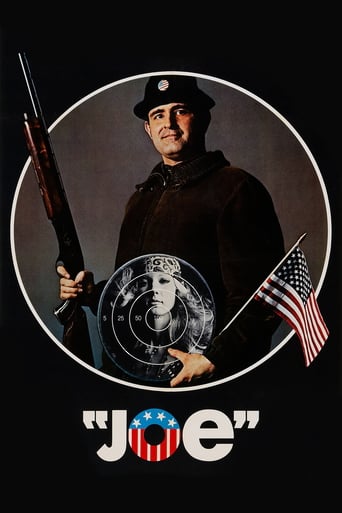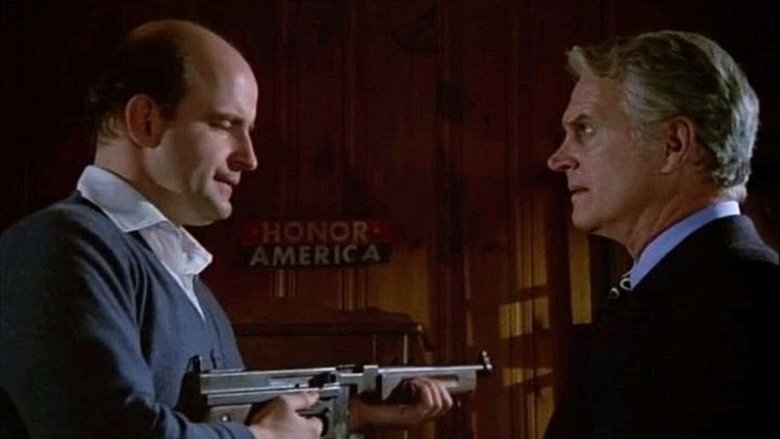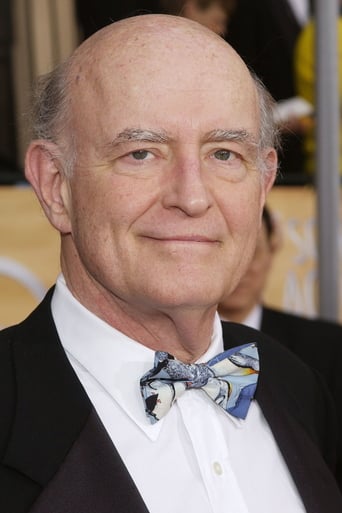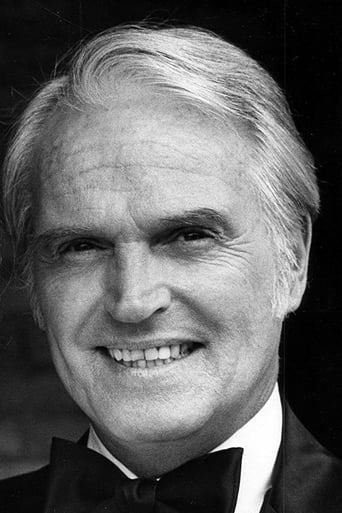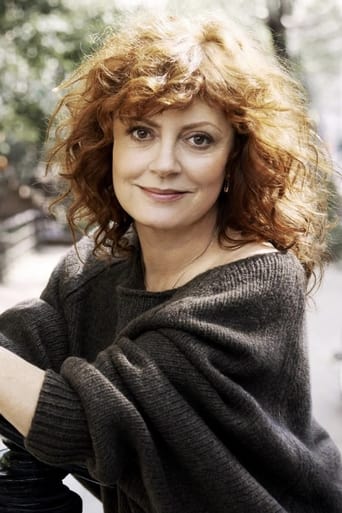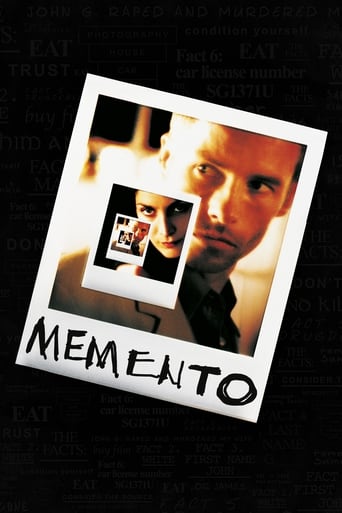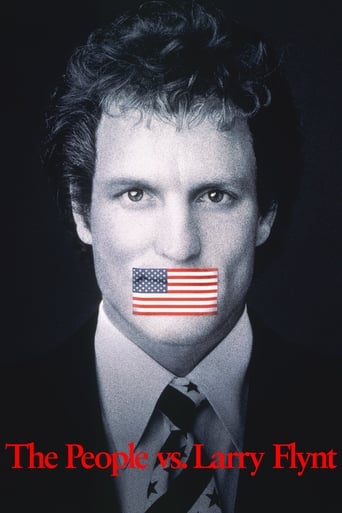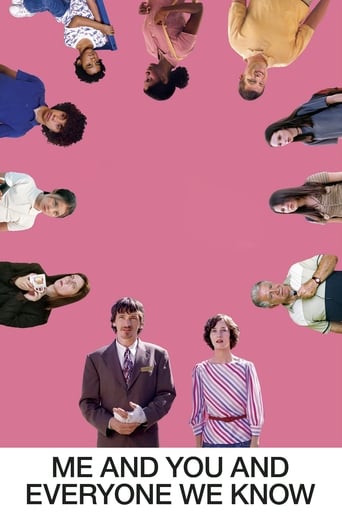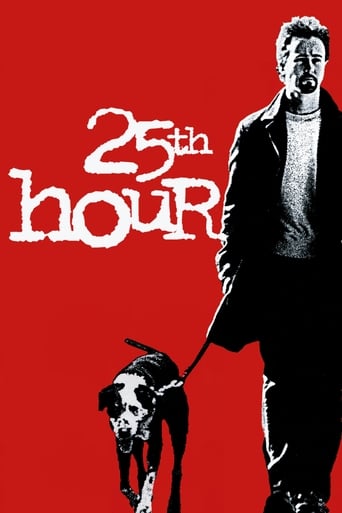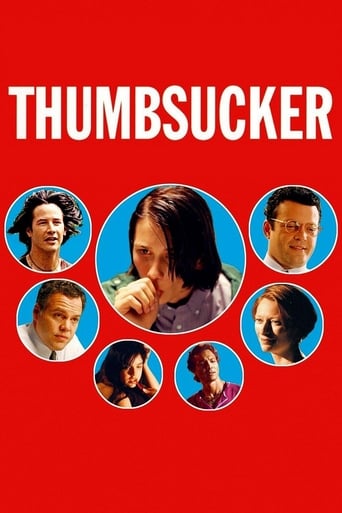Joe (1970)
Ad executive Bill Compton confronts and murders his daughter's drug-dealing boyfriend. Wandering into a local bar, Bill encounters a drunken, bigoted factory worker with a bloodlust, Joe Curran. When Bill confesses the murder to Joe, the two strike up an uneasy alliance, leading to a wild adventure.
Watch Trailer
Cast


Similar titles
Reviews
After beating--and unintentionally killing--the drug dealer who has been shacking up with his daughter, a New York businessman leaks his secret to a blue-collar worker in a bar and, just as unintentionally, begins a curious friendship with the rough-hewn bigot. Technically amateurish examination of America's loss of morals circa 1970 is saved from being a wallow by occasionally smart, often funny satire and character development, as well as by strong performances. Peter Boyle's Joe exemplifies the uneducated, underpaid working stiff, though his hate-filled rants at society in general smack of an intentionally controversial bias. Director and cinematographer John G. Avildsen puts Joe up on some imaginary platform where no one dares refute his complaints; however, at a comical orgy late in the film, we also get to see Joe as a cloddish buffoon who's no Valentino in the sack. Avildsen is very wise to show us different sides of this character, as well as Dennis Patrick's apathetic white-collar executive, but nothing is really solved by the 'shocking' finale. Norman Wexler's screenplay was Oscar-nominated, though his jabbing, stabbing dialogue is a great deal more provocative than his simple-minded, unhinged plot. ** from ****
Still a powerful movie that's hard to pull away from. This is not The Sound of Music by any means but a cold hard look at America in the late 60's. The anti establishment clashing with the old school generation of post World War II. In a weird ironic twist of fate Ad executive Bill Compton learns of his only daughter's Melissa (Susan Sarrandon) drug overdose on methamphetamine. Bill decides to go to his daughter's Greenwich Village apartment to gather up some clothes and personals while she's convalescing. Bill to his dismay, milling through the dilapidated filth ridden apartment, (pills and drug paraphernalia cluttered,) runs into Melisssa's drug dealing boyfriend who happens to say all the wrong things about his daughter, taunting the troubled man to no end which infuriates Bill to point where he grabs the druggie and bashes him against a wall till his skull cracks. Laying lifelessly on the floor Bill flees the apartment and ends up at a Tavern where a bald, overweight individual is mouthing off about Blacks and hippies and the sorry state of the world. Enter Joe Curran (Peter Boyle) who captivate you, the viewer, and drags you into his 9-5 factory working slob world. Meanwhile our shaken ad executive/ first timer of manslaughter in the first degree, has the look of someone who just killed someone for the first time. Joe in his intoxicated state sees right through Bill as he admits to killing someone and Joe says, "Your kidding?" Bill looks right back at a stunned Joe and takes the bold statement back by saying "Just Kidding!" But Joe is dubious and has this feeling about Bill as pleasantries are exchanged i.e. what do you do for a living etc... A few days later Joe and his simpleton wife watch the news about a drug dealer found dead in an apartment. A bell goes off in Joe's head as he realizes that Bill actually committed that act of violence. Joe is moved by that action rather than calling the authorities. Instead he looks up Bill Compton and reaches him at his Ad Agency by phone as per prior conversation that night at the bar. They meet at a bowling alley as classes clash throughout the rest of the movie. Bill with his important advertising executive position. Very distinguished professional, aged but handsome, tall and grey well reserved disposition and impeccably dressed. On the other hand we have Joe. The World War II veteran factory worker who is flamboyant, extremely uncouth due to his lack of education, making a meager salary, bigoted and hates just about everything from Blacks to Gays. Makes you wonder if Norman Lear got his Idea for the Television show All In The Family while watching this movie. I noticed the similarities when Joe tells his wife to be quiet during dinner. Despite the two men's backgrounds, Bill and Joe have a chemistry and a mutual admiration for each other as they both believe the world is going to the dogs. Joe invites Bill and his elegant yet snobbish wife Joan played by Audrey Caire to Astoria, Queens to Joe's Railroad styled tracked home. Joe's wife is preening in anticipation as the Royals (The Compton's) enter their home Joan is a pro at patronizing Joe's wife May Jo on her home, her drapes and unusual name. Joe boasts that not only does he have ginger ale in the house but he also has seven up to go along with the cheap scotch. After a gourmet meal of Chinese take out in the Curran's cramp dining area the men enter Joe's man cave full of bowling trophies and deer heads but Joe's pride and joy is his cabinet full of weaponry. Joe takes out a machine gun and says, "Your not supposed to have this it's illegal." Joe wants to make it quite clear that he won't tell a sole about Bill's involvement murder in his daughter's apartment. Joe summons Bill's Wife to the basement as Joe also reassures Joan that there's Nothing to worry about. May Jo tells Joan to her disdain that they should get together at her Manhattan upscale apartment real soon. The Compton's return to their luxury Central Park apartment as Bill pours some brandy for his wife and himself. Starts a fire in front of his elaborate fire place. Earlier that day at the Hospital, Melissa laying in bed relaxing has a visit from her girlfriend who breaks the shocking news that her boyfriend was murdered in her apartment. Melissa panic stricken gets dressed and runs out of the Hospital. Meanwhile at the apartment a soothing snort of brandy shared with the discussion of Bill's plight of the murdering of that no good hippie boyfriend is discussed as we hear noises from the other room as a devastated Melissa overhears the reality that her Father murdered her boyfriend . She runs out of the apartment as Bill tries to stop her without any luck . Melissa flees into the city night and Bill's is wondering what to do next. Don't worry cause Joe has a plan to find her with resounding results and an ending you'll never forget. Wonderful screenplay by Norman Wexler and kudos for his early work of cinematography/director by John Avildsen who is also famous for physical movies such as the Rocky and Karate Kid films. Great period piece which still resonates with today's social climate.
An odd thing about the movie is that no one comes off very sympathetically. That goes for life styles as well, whether working class, upper class, or hedonistic hippie. Everyone's compartmentalized and disdainful of non-peers. Of course, the movie's crux lies in working class Joe's (Boyle) alliance with white-collar Bill (Patrick) over their mutual hatred of hippies. And that's following Bill's pivotal murder of his daughter's drug dealer boyfriend.The movie was much talked about at the time. After all, the hippie movement was widely seen and heard on America's airways, but not so working class America's reaction. For guys like Joe, it seemed everybody was making social progress except for working class white males. Plus, pot-smoking kids were doing things that beer swilling blue-collar guys could only dream about—free time, free sex, few responsibilities. Worse, these kids were insulting the nation's traditions, the very ones that afforded them the luxuries they enjoy. The movie may exaggerate some, but the nub of Joe's hatred of those he thinks are ruining the country is on the mark. (Then too, I suspect a similar sentiment lives on in today's Tea Party, though not as pronounced.) The movie also suggests the potential of a broader cross- class reaction. Significantly, Joe's working class anger eventually spreads to white-collar Bill, as together they make war on what they see as a youthful parasitic class. To me, the movie's really about the emerging crisis of the Vietnam era, concerning not only who will shape the nation's present, but its future as well. Now, after 50-years, the hippie movement may have vanished, but the animus against minorities and others regarded as not fully American remains a potent force. The movie may have aged, but this aspect hasn't. In passing-- note in the movie how the feminist movement has yet to have impact. Thus uppity women are not included in Joe's long list of cultural evildoers. Still, it's entertaining to wonder how Joe and especially his dutiful wife would react to housewives desiring more options.The movie itself has a number of memorable scenes. I especially like it when our two crusaders guzzle booze while denouncing pot-smoking kids. Then too, Joe's barroom tirade came at a time when audiences were not used to such uncensored explicitness as gutter obscenities and hateful ethnic slurs. Thus Boyle's fiercely delivered rant was spellbinding at the time, and I suspect still is. But most of all is that subtle sequence of Joe and Mary Lou (Callan) sharing an awkward evening with their social betters Bill and Joan (Caire). What a masterpiece of staging, scripting and performance. It's almost wrenching to watch the two wives try to deal with the class barriers separating them once they've been thrown unceremoniously together. Caire is especially meaningful as she betrays hardly a hint of what she's really thinking, while the eager Mary Lou does her best to please. Yet every time the housewifely hostess does something agreeable, Joe steps on it with an uncaring remark. Comparisons with TV's Edith Bunker and All in the Family (1971-1979) do hit the mark.It's easy to deride Joe's unabashed vulgarity. Still, he's always straightforward about what he thinks. No guess-work there, unlike the white-collar guy who plays up to him once he thinks Joe's going to be his new boss. Plus, Joe works hard at a demanding foundry job. In short, he's that average joe who does the sometimes dirty work that keeps the nation running. In that key regard he deserves respect, maybe not for everything he thinks, but surely for what he does. And maybe if hard working guys like him got more respect for what they do, they wouldn't be so ready to take frustrations out on others. To me, that's one of the most important issues raised in a movie that's as relevant today as 50-years ago when I first saw it.
John G. Avildsen directed Norman Wexler's inflammatory script about a middle-aged "square," who, after accidentally killing his daughter's pusher/lover, teams up with a bigoted blue collar nitwit (the title character played with a lot of bravado by Peter Boyle) with tragic results. They commiserate and find common ground in their intolerance of ANYTHING they're not: liberals; blacks; the young. A time-capsule of the early 1970s, this plays like an R-rated version of ALL IN THE FAMILY with Boyle playing Archie Bunker with guns. The acting is all first rate...not only by Boyle, but by Dennis Patrick, Susan Sarandon and, at least briefly, Patrick McDermott as one of the most unlikeable victims in movie history. A violent, unforgiving film. It's certainly unsettling but what is it telling us? It's OK to have junkies & pushers running rampant as long as they're peace-loving? It's become a classic.

